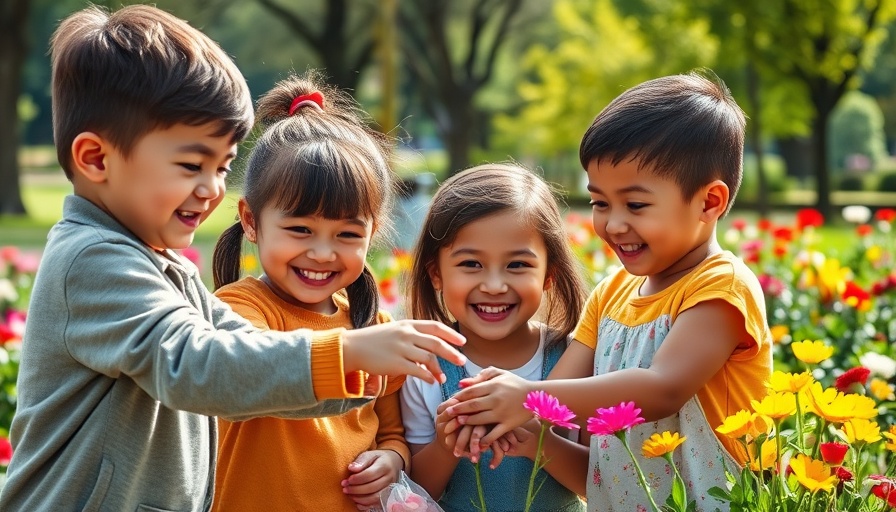
The Power of Kindness: Lessons for Families
In an ever-increasingly complex world, the ability to foster kindness in children has become paramount. Recent findings underline the impact of parental behavior on children's emotional development, particularly in the context of mental health challenges such as anxiety and depression. When parents exemplify kindness, it not only nurtures a compassionate environment but also equips children with essential coping strategies that can alleviate the effects of anxiety disorders and stress management.
Lead by Example: The Role of Parents and Caregivers
Parents and caregivers play a crucial role in shaping children's values. By modeling empathetic behavior, adults can teach children how to extend kindness to others and themselves. According to mental health experts, this nurturing approach can significantly contribute to lowering the risk of anxiety symptoms that many children today face, including generalized anxiety disorder and social anxiety.
Open Conversations: The Importance of Discussing Feelings
Engaging in dialogues about emotions can alleviate feelings of isolation that many children experience. Discussions centered on kindness encourage children to share their thoughts, leading to better emotional intelligence. Understanding their feelings can empower young ones to manage their social anxieties more effectively, supporting their mental health in the long run.
The Therapeutic Role of Pets
Pet therapy is a unique and effective strategy for fostering compassion and emotional resilience in children. Caring for a pet can teach children responsibility and empathy. Studies have shown that interactions with animals can reduce stress and anxiety, proving invaluable for those struggling with pervasive mental health issues. Pets can act as a comforting presence, encouraging kindness towards themselves and others.
The Role of Education in Cultivating Kindness
School-based programs focusing on mental health education can further spread the message of kindness. Educators equipped with knowledge about mental health policy updates can integrate lessons on empathy and social responsibility into their curricula. This proactive approach not only creates a supportive atmosphere but also equips students with tools to deal with stressors like performance anxiety and COVID-19-related fears.
Range of Strategies for Kindness in Action
To instill a lasting sense of kindness in children, consider the following strategies: 1) Encourage participation in community outreach, 2) Engage in mindfulness practices such as meditation and yoga that emphasize self-care, and 3) Utilize relaxation techniques that include breathing exercises to manage stress effectively. These activities can reinforce the importance of kindness—inwardly and outwardly—deepening their understanding of emotional intelligence.
Beyond the Home: Communal Efforts in Promoting Kindness
The wider community plays a vital role in supporting families in raising kind children. Mental health advocates push for stigma reduction surrounding mental health issues, paving the way for more families to seek help and resources without fear of judgment. Peer support and local resources can serve as critical components in fostering an overarching culture of kindness and mental wellness.
Looking Ahead: Future Trends in Kindness and Mental Health
As society embraces kindness as a powerful tool for healing, the integration of holistic approaches such as digital mental health resources and teletherapy can provide additional support to families. The future of mental health awareness hinges on our ability to cultivate environments rich in kindness, creating resilience not just in children but within entire communities.
By prioritizing discussions about emotions, modeling compassionate behavior, incorporating therapeutic elements like pets, and championing community involvement, families can significantly influence the emotional well-being of the next generation. These concerted efforts ensure that children grow into kind, empathetic adults capable of navigating a complex world.
 Add Row
Add Row  Add
Add 




 Add Row
Add Row  Add
Add
Write A Comment